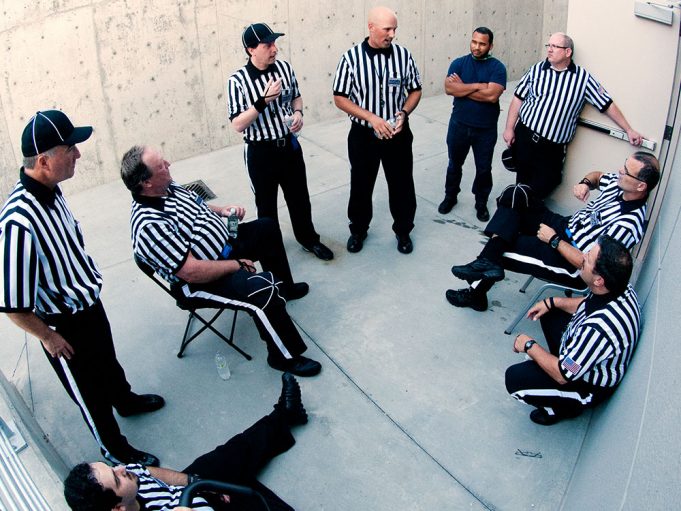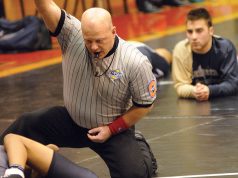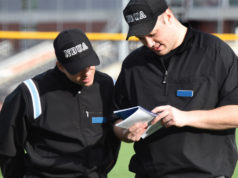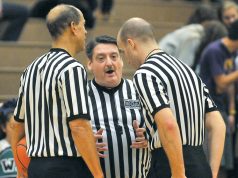Matt Austin, Louisville, Ky., is a Southeastern Conference football referee who has worked in the league for 10 years. Through a quarter-century of officiating, he’s come to grips with his own personal approach to handling nerves before a big game. As the white hat, however, he acknowledges he has to make his approach work to stabilize everyone on his crew.
“I treat every game the same,” says Austin. “I know that sounds like a mantra or the company line, but it’s really not.
“If I stop to think about how many people are watching on TV or how many are in the stands, I may not be able to react to much.”
To keep everyone focused, Austin says, he uses the same approach to game preparation every week. It begins on Friday night with film review, discussion of the observer’s comments and an analysis of the upcoming teams’ tendencies and formations. He makes a point of having everyone on the crew lead part of the discussion. The intent is to have everyone feeling prepared and engaged before they get to the field. On Saturday, everyone has a job prior to the game and there’s little time to ponder what might happen.
In the locker room, Austin tries to keep the atmosphere light. “I don’t want to appear to be goofing around,” Austin explains, “but you don’t want to be so tight that a guy’s going to walk out there and not be able to function.”
In Austin’s case he is surrounded by seasoned officials who have demonstrated an ability to combat the demons. His approach to game preparation does all the right things to help counteract the choke reflex: He keeps pregame activities to a familiar routine; the lack of surprises and the attention to the same details that have made the crew successful so far set the mental table for continued focus and confidence. That familiarity keeps things “feeling right” and stymies the tendency for any apprehensive physiological response to the situation. Involving the whole crew in the Friday meeting and using a pregame procedure that keeps everyone busy gives their working memory little time to dwell on, “What if?”
Finally, doing things like watching and discussing other games in the locker room while waiting for theirs to start is a spatial activity. The related conversations about what they’re watching help, too: They prevent verbal memory from having the time to start churning and robbing procedural memory of the brain power it needs to flourish.
We’re often instructed by state associations and assigners to follow the same kind of routine that Austin does. Now we might have a better idea how that approach helps with managing nerves.
The mark of a great crew chief is to provide stability for the rest. When you keep your crewmates too busy doing their jobs to consider the potential for failure, the choke reflex can’t get a foothold.
Then the crew’s chances of success can improve dramatically.
Referee’s in-depth “Pick A Pregame” guides are great resources that will guide you through a variety of useful pregames depending on the circumstances of the contest you’re about to work. Available for BASKETBALL, BASEBALL and SOFTBALL. For Football, consider using SPECIFICALLY SPEAKING which guides the white hat through many situations, including pregame conferences.
What's Your Call? Leave a Comment:
Note: This article is archival in nature. Rules, interpretations, mechanics, philosophies and other information may or may not be correct for the current year.
This article is the copyright of ©Referee Enterprises, Inc., and may not be republished in whole or in part online, in print or in any capacity without expressed written permission from Referee. The article is made available for educational use by individuals.


















